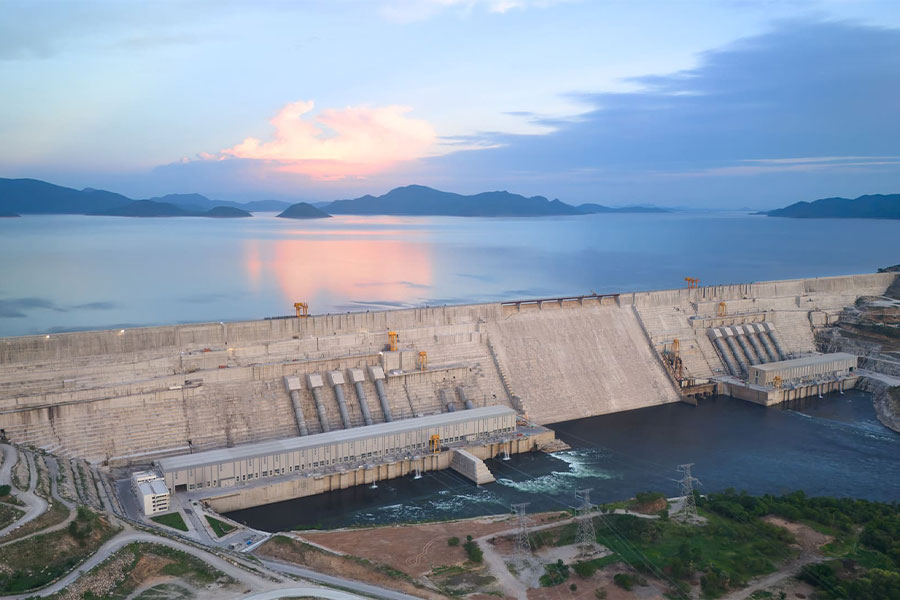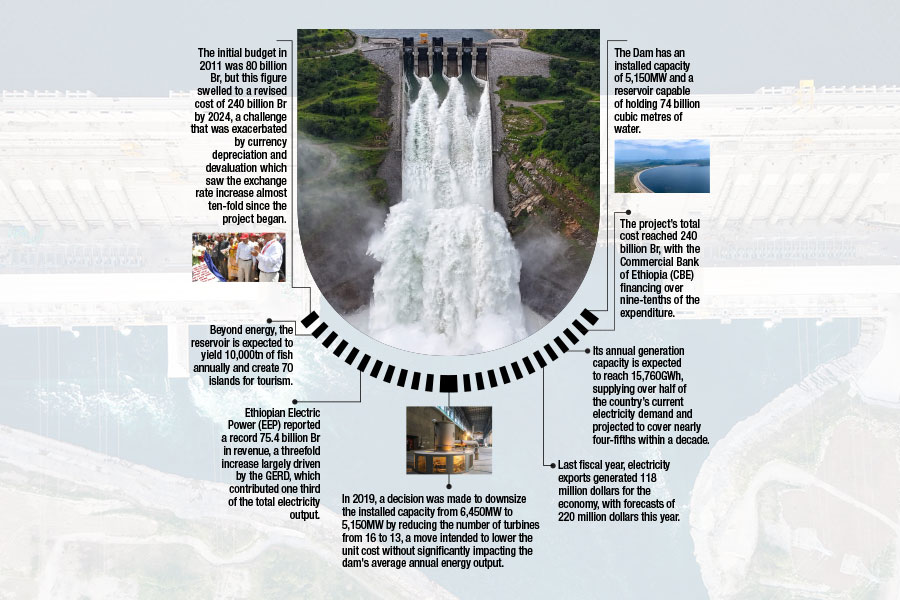
Dec 15 , 2024
By Alemayehu Seifu
Establishing the first Free Trade Zone (FTZ) in Dire Dewa marks a turning point in the federal government’s bid to elevate Ethiopia's economic profile, integrate it into global value chains, and attract a new wave of foreign direct investments. Rooted in the recently enacted law governing the special economic zones (SEZ), the approach signals a growing acknowledgement of the importance of specialised zones in driving trade, enhancing competitiveness, and stimulating industrial development.
The new SEZ framework, with free trade zones as a key pillar, draws heavily on international exemplars. Global precedents, from Panama’s thriving regional trade hub to the United Arab Emirates (UAE) tax-free enclaves and China’s sprawling, export-oriented zones, have demonstrated that strategic infrastructure, stable governance, and favourable fiscal regimes can transform once-remote locales into magnets for global commerce.
Ethiopia's leaders now aspire to replicate these conditions in Dire Dewa, taking advantage of its proximity to ports in Djibouti, a crucial lifeline for Ethiopian imports and exports. By reducing transit times and logistical intricacies, they hope the new zone will serve as an engine for export-led growth.
The shift toward free trade zones marks a departure from past industrial initiatives. Under the previous law governing industrial parks, manufacturing hubs focused on textiles and light manufacturing sectors. As these parks are transitioned into SEZs, pending regulatory compliance and infrastructure upgrades, the operational scope widens to encompass diverse economic activities. This evolution reflects the authorities' recognition that robust supply chains, comprehensive logistics services, and a broad range of commercial operations are necessary to compete in a highly globalised marketplace.
Incentive packages form a critical component of the government’s strategy. Within the confines of the free trade zones, foreign investors can benefit from duty exemptions, zero-rated VAT, and exemptions on income tax dividends, alluring sweeteners in a region where capital can be footloose. The relaxed joint-venture requirements further support the zone’s appeal, allowing foreign businesses to set up shops without domestic partners. In parallel, the central bank has begun revising its foreign exchange regulations to accommodate more fluid, trade-driven financial flows and reduce currency-related constraints.
Yet, operationalising this vision depends on more than simple policies on paper. On-the-ground realities, ranging from infrastructural gaps to bureaucratic hurdles, will determine whether the free trade zone in Dire Dewa can live up to the promise held by its international counterparts. The zone’s development requires substantial public investment in power supply, road networks, and utilities. These elements should extend beyond the zone’s immediate boundaries, integrating the FTZ seamlessly with national and regional transport corridors.
Strategic partnerships, public-private arrangements, and the involvement of multilateral financial institutions should be critical in financing these ambitions. Such infrastructure-driven investments could reduce the “frictional costs” of doing business, ultimately improving Ethiopia’s positioning as a competitive trade partner.
Institutional coordination will also be tested. Multiple federal agencies, from the Ethiopian Investment Commission and the Ethiopian Customs Authority to the Ministry of Trade & Regional Integration, should work in lockstep. Operational manuals and standardised procedures are already in development, reflecting a desire to streamline decision-making and accelerate investor onboarding. The objective is to provide one-stop administrative services and a predictable environment where investors can navigate regulations without debilitating delays.
The long-term success of the FTZ experiment will depend on the zone’s ability to attract and retain a critical mass of overseas enterprises. Infrastructure, incentives, and administrative ease create necessary conditions for success, but policymakers and local and federal authorities should also address broader macroeconomic and political difficulties, such as ensuring currency stability and maintaining investor confidence.
Skilled labour availability, political stability, and transparent governance are key elements that determine whether a free trade zone evolves from a policy ambition into a genuine economic catalyst.
PUBLISHED ON
Dec 15,2024 [ VOL
25 , NO
1285]


Fortune News | Mar 20,2021

Viewpoints | Jan 21,2023

Fortune News | Nov 23,2019

Radar | May 03,2025

View From Arada | Aug 23,2025

Photo Gallery | 157040 Views | May 06,2019

Photo Gallery | 147331 Views | Apr 26,2019

Photo Gallery | 135909 Views | Oct 06,2021

My Opinion | 135290 Views | Aug 14,2021

Dec 22 , 2024 . By TIZITA SHEWAFERAW
Charged with transforming colossal state-owned enterprises into modern and competitiv...

Aug 18 , 2024 . By AKSAH ITALO
Although predictable Yonas Zerihun's job in the ride-hailing service is not immune to...

Jul 28 , 2024 . By TIZITA SHEWAFERAW
Unhabitual, perhaps too many, Samuel Gebreyohannes, 38, used to occasionally enjoy a couple of beers at breakfast. However, he recently swit...

Jul 13 , 2024 . By AKSAH ITALO
Investors who rely on tractors, trucks, and field vehicles for commuting, transporting commodities, and f...

Sep 13 , 2025
At its launch in Nairobi two years ago, the Africa Climate Summit was billed as the f...

Sep 6 , 2025
The dawn of a new year is more than a simple turning of the calendar. It is a moment...

Aug 30 , 2025
For Germans, Otto von Bismarck is first remembered as the architect of a unified nati...

Aug 23 , 2025
Banks have a new obsession. After decades chasing deposits and, more recently, digita...

Sep 15 , 2025 . By AMANUEL BEKELE
The Grand Ethiopian Renaissance Dam (GERD), Africa's largest hydroelectric power proj...

Sep 13 , 2025
The initial budget in 2011 was 80 billion Br, but this figure swelled to a revised cost of 240 billion Br by 2024, a challenge that was exac...

Banks are facing growing pressure to make sustainability central to their operations as regulators and in...

Sep 15 , 2025 . By YITBAREK GETACHEW
The Addis Abeba City Cabinet has enacted a landmark reform to its long-contentious setback regulations, a...